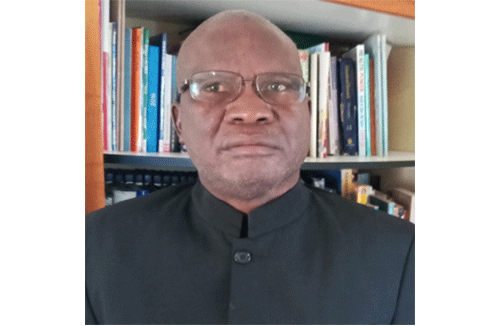Historical distortions for political expediency have unfortunately been a recurrent tactic throughout history.This has been pronounced in almost every sector of society and in the echelons of power.It has become the norm, and is practised with impunity as its beneficiaries know that they will not be held accountable for their intentions and actions.
Governments, leaders and even individuals with agendas often manipulate historical narratives to serve their present interests. Unfortunately, the appetite for power and greed for these people in high positions is always insatiable. Depending on the nature of the historical distortions, it is important to note that these trademarks can be viewed from different perspectives. The historical distortions may also take different forms depending on the interests of the people involved.
Many national and political leaders always use nationalist narratives to coerce and hoodwink some people to believe and follow them. In this case, many national leaders tend to exaggerate or selectively highlight historical events to foster national pride and unity. But at the bottom of the whole exercise lie national leaders who are not genuine with the aspirations of the people. The national leaders may use national symbols like the flag and national anthem to entice ordinary citizens who may not even understand the meaning of such trademarks. In the process of historical distortions, downplaying or omitting fewer flattering aspects of history may be involved.
A good example is when the colonial forces are defeated, but the situation becomes worse than before the conquest. However, what might be experienced is what Frere terms “the formally oppressed becoming more oppressive than the oppressor.”
The political leadership might be glorifying their own pursuits at the expense of the masses they are supposed to serve, but instead they are putting their own interests above everything.
Similarly, there is a tendency among some political leaders to distort historical facts to justify some policies or actions that they might take, amid resistance from some opposition circles.
This can range from misrepresenting past agreements to support current diplomatic stances to using historical grievances to rationalise aggressive actions.
The recently signed treaty between the two heads of state of Namibia and Botswana in 2018, which abrogated the “Anglo-Germany treaty of 1 July 1890 between Great Britain and Germany, which redrew the boundary of the two countries, is an example of historical distortions for political convenience. Another strategy that political leadership may use is revisionism, in which some governments engage in historical alteration to redefine national identity or to whitewash past atrocities.
This could involve altering textbooks, monuments or public commemorations to present a more favourable version of history. After independence, many African scholars of history faced the daunting and enormous task of rewriting the continent’s correct history, as it had been marred and distorted by colonialism due to a lack of documentation.
Hotep says Europeans practised and perfected territorial, intellectual and mental colonialism to conquer and colonise the land, knowledge and minds of the indigenous peoples of Africa to disconnect Africans from their heritage and culture. In the case of the Zambezi region, its history is shrouded in political and tribal confrontation and argumentative discourses. The case of the Zambezi possesses more challenges as the region is volatile. Equally important to mention are the cultural and ethnic narratives in the realm of distorting history in efforts to justify the standpoint of one ethnicity. Historical distortions are often employed to reinforce cultural or ethnic superiority.
This can involve exaggerating the achievements or contributions of one group, while diminishing those of others. In the Zambezi region, historical sources indicate that the early inhabitants of the Zambezi region, like in many parts of Southern Africa, were the San. However, all groups now claim to be the early arrivals in the region and demand to be accorded and therefore be granted superiority status. In the early 1980s, the Masubia and Mafwe ended up in the Bloemfontein Supreme Court fighting over the chieftainship superiority of the region. In the annals of history, religious justification has also reared its head in the holy sphere of the church. Religious institutions and leaders may distort history to reinforce religious doctrines, or to justify certain practices.
This can involve interpreting historical events in a way that aligns with religious beliefs, even if it contradicts established historical evidence. For example, churches that supported apartheid claimed that the Good Lord desired that Blacks and Whites were not created to live side by side, let alone marry from both races.
One common aspect of historical distortion is the outright denial of historical events, in which some political movements or governments refuse to acknowledge well-documented historical events, such as genocide or mass atrocities, for political purposes.
This has been the case of the Herero-Nama genocide of 1904–1908, in which the German government has been deliberately refusing to take responsibility for the atrocities committed during that period. Equally, the ruling party and its top leadership have been shying away from the merger with CANU in 1964. Deliberate denial of authenticated and documented historical materials can serve to absolve responsibility, maintain power or perpetuate ideologies.In general, historical distortions for political expedience undermine the integrity of historical scholarship, and can perpetuate ignorance and prejudice.
It’s essential to critically evaluate historical narratives and seek out multiple perspectives to gain a more accurate understanding of the past.
*Prof. Makala Lilemba is an academician, author, diplomat, motivational leader, researcher, and scholar.


